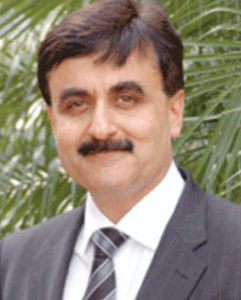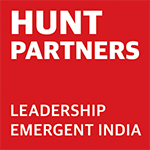Amit ChopraManaging Director & VP/GM, Thermo Fisher Scientific, India
Amit joined Thermo Fisher Scientific India in May 2007 as Managing Director for their Laboratory Products Group in India, and was named Managing Director & VP/GM for Thermo Fisher’s India operations in March 2011.
Amit started his career at ICI in India where he served for 18 years in a variety of commercial, M&A, manufacturing and General Management roles based in India as well as in Kuala Lumpur, Malaysia, where he managed commercial and operations functions for ICI’s specialty chemicals business, Uniqema, for Asia Pacific.
Amit holds a bachelor’s degree in Chemistry from St. Stephen’s College, Delhi University, where he graduated with high distinction and was awarded the Govt. of India (UGC) scholarship for post graduate studies. Amit also has an MBA from XLRI India, and an Advanced Management certificate from Leeds University, UK.

1. What was the mandate given to you by the Board when you took over in your role?
The objective of the management team is to accelerate growth in the India market by leveraging our scale and depth of capabilities, and delivering our unique customer value proposition. Thermo Fisher Scientific is the world leader in serving science and invests more in R&D than any other business in our industry. Our mission is to enable our customers to make the world healthier, cleaner and safer, and it is the mission which drives our effort to make our customers more successful by helping them to accelerate innovation and improve productivity.
2. How much of that has been achieved? What were the challenges faced?
We have delivered solid growth over the past 4 years and have considerably expanded our business and reach. Our customer satisfaction has significantly improved and we have been able to bring our latest technology offerings into India, to help our customers become even more successful.
3. What are the key challenges your organization is facing currently? And what are the steps you are taking?
One of the key challenges over the past 24 months has been the macro economic situation in the country. We have invested in building our technical and applications capabilities in India over this period. We now have 4 applications and demonstration centers throughout the country, which offer a wide range of solutions in pharmaceuticals, bioprocessing, food safety, forensic sciences and healthcare.
We have also continued to invest in upgrading and expanding our service, sales and applications teams over this period.
Thermo Fisher employs a continuous improvement methodology called Practical Process Improvement (PPI) that is focused on improving safety, material flow and lead time. I am really pleased with the progress we have made in building our organization over the past few years.
4. How have the changes in technology/globalization/economy affected your sector?
Changes in technology and globalization have meant that our customers require even better solutions for enhancing their productivity and innovation. Our customers expect world class technologies and service levels, and rightfully so. We have worked towards adding value to our customers by forging close partnerships with them and bringing our most innovative technologies to them.
5. What is your talent strategy? How do you draw the balance between home grown vs lateral hiring at the leadership level?
We are deeply committed to developing talent and have made significant investments in learning and development across the company. We have also invested in a training academy for service, and have close connections with our global business partners to ensure that technical and applications training is intensive, in addition to leadership and soft skills development. We have had a good balance between internal talent vitality and external hiring at the leadership level.
6. How does your organization identify and develop future leaders?
As I mentioned, we have a very structured process of identifying and screening talent, which has a visibility at the highest levels within the company. Our Leadership team is deeply committed to this process, and I believe that we have built a terrific team in India.
7. In a world full of volatility, uncertainty, complexity & ambiguity (VUCA), innovation has become one of the most important factor to transform a crisis into an opportunity. How do you promote Innovation?
Thermo Fisher Scientific is very committed to innovation and spends $700 million annually on R&D. Our new products are routinely recognized for innovation, but more importantly we have the confidence and trust of our customers who look at us for continuously enhancing and improving our world class technologies.
8. How do you define & practice leadership?
In my view, leadership is about making an impact not only to the organization, but also to the lives and future of all employees as well as stake holders in communities that we operate in. My practice of leadership is always by example. I am a “hands on” leader and have enjoyed every moment of this great opportunity I have had to lead Thermo Fisher Scientific in India.
9. How Indian leaders can become Global Leaders?
Developing global sensitivity, communication skills and international exposure go a long way in helping Indian leaders become more global in their perspective.
10. What are the 3 most pivotal moments in your career that you either learned from and/or that got you where you are today?
Earlier on in my career, I had an opportunity to work in Asia Pacific for close to 4 and a half years. That exposure was very important in my development as a leader, providing me with the opportunity to manage commercial and manufacturing operations across Asia. I have also been involved in 2 strategic development/M&A roles which were a terrific learning opportunity. Working through business cycles, in hindsight has been a great experience, as it has helped me to lead and manage through difficult economic times, which is an important experience.
11. What message would you like to share with young professionals at the start of their career?
My simple message is to invest in yourself and always find the right balance between your ambitions and the organization’s needs. Take a long term view of your career, as developing skills and getting great experience in the early part of your career pays off in the long run.
